The Cold Truth–How My First Russian Winter Showed Unexpected Warmth
Or... How Russia Shattered My Assumptions
One of my favourite parts about living in Russia is watching new expats have their “fog lifting moment”. That instant when everything they thought they knew about this country falls away faster than the snow from your roof when Spring finally comes around.
At some point along our Russian journey, we all go through it. For some it happens suddenly in the middle of Пятёрочка, wide-eyed, looking at a price tag. For others, a slow understanding spurred on by a culmination of Russia’s timeless culture blended perfectly with modernity.
My fog-lift moment wasn’t a gentle realisation—it felt more like being hit by a snowball.
As an Australian raised on Western narratives about Russia, I expected frozen, dismal, and grey Khrushchyovkas. But my first steps into Russia were just the beginning. I wasn’t just discovering a wondrous country, I was shedding a lifetime of misguided attempts to paint this Motherland as a dangerous, miserable, and decaying society.
Essentially Russia isn’t what you’ve always been told it is, and this first post will be the first of many about how I found that out the hard (and cold) way.
Strap in, it will be a long one (sorry).
The Goodbye That Felt Too Easy
In the Spring of 2022, fresh off the plane and having returned to Australia from Kyrgyzstan, my then fiancée and I were scheming ways we could stay together. This was amidst a plethora of geopolitical complications and the ever-present threat of Australia once again slamming its borders shut in yet another COVID-19 over-reactionary decision.
Australia has a lot of tickets on itself and has over-valued its own immigration value, so bringing a partner to Australia is, for lack of better words, obnoxiously expensive. In fact, it trends upwards of $9000 AUD (plus the onslaught of immigration lawyer fees), so we decided that coming to Russia was the best course of action.
Spoiler: My (now) wife is Russian.
At this point, the rapid decline in living standards in Australia was becoming readily apparent. I had no hope of ever owning my own home despite having a reasonably paid IT Infrastructure job, and I was stuck renting in the asshole of earth: George Town, Tasmania.
I rapidly began the surprisingly uplifting experience of selling, donating, and just plain old throwing my belongings away. In the space of a few months and about 500 trips to the tip, I had reduced my entire life to two suitcases and a box of Ubiquiti network gear I couldn’t bear to sell or get rid of.
My good friend is now enjoying strong and reliable Wi-Fi coverage in his home (totally not an endorsement for Ubiquiti btw).
By the time I took my last steps out of that rental flat, three houses on my street had already been broken into. A neighbour down the road had been stabbed to death. The parkland at the heart of town had transformed into a sprawling encampment for the homeless.
I stood for a moment, looking out over the horizon, now dimly veiled in the thick smoke of however many stolen cars had been torched the night before. The air smelled of burnt rubber and something unshakably final.
This was it. My last goodbye to George Town. My last goodbye to Tasmania. My last goodbye to the island I had called home for over a decade.
The evening before I left Tasmania, Christmas Day to be exact, I found myself in Devonport with a one-way ticket to Yekaterinburg, Russia. The gentlemen I had sold my car to politely offered to drive me to the Devonport terminal where I would take the Spirit of Tasmania ferry to Melbourne.
There, the howling salty wind from the Bass Strait was biting at my eyes, and out of sheer nervousness, I walked to the end of the sea wall to watch the sunset. Lamenting the loss of my Suzuki Jimny and now having to move under the power of my own two useless legs, I walked past the monument to Tasmanian opium poppy growers, said hello to a Pademelon, and made my way toward the infamous statue of Poseidon that adorned the rocks.
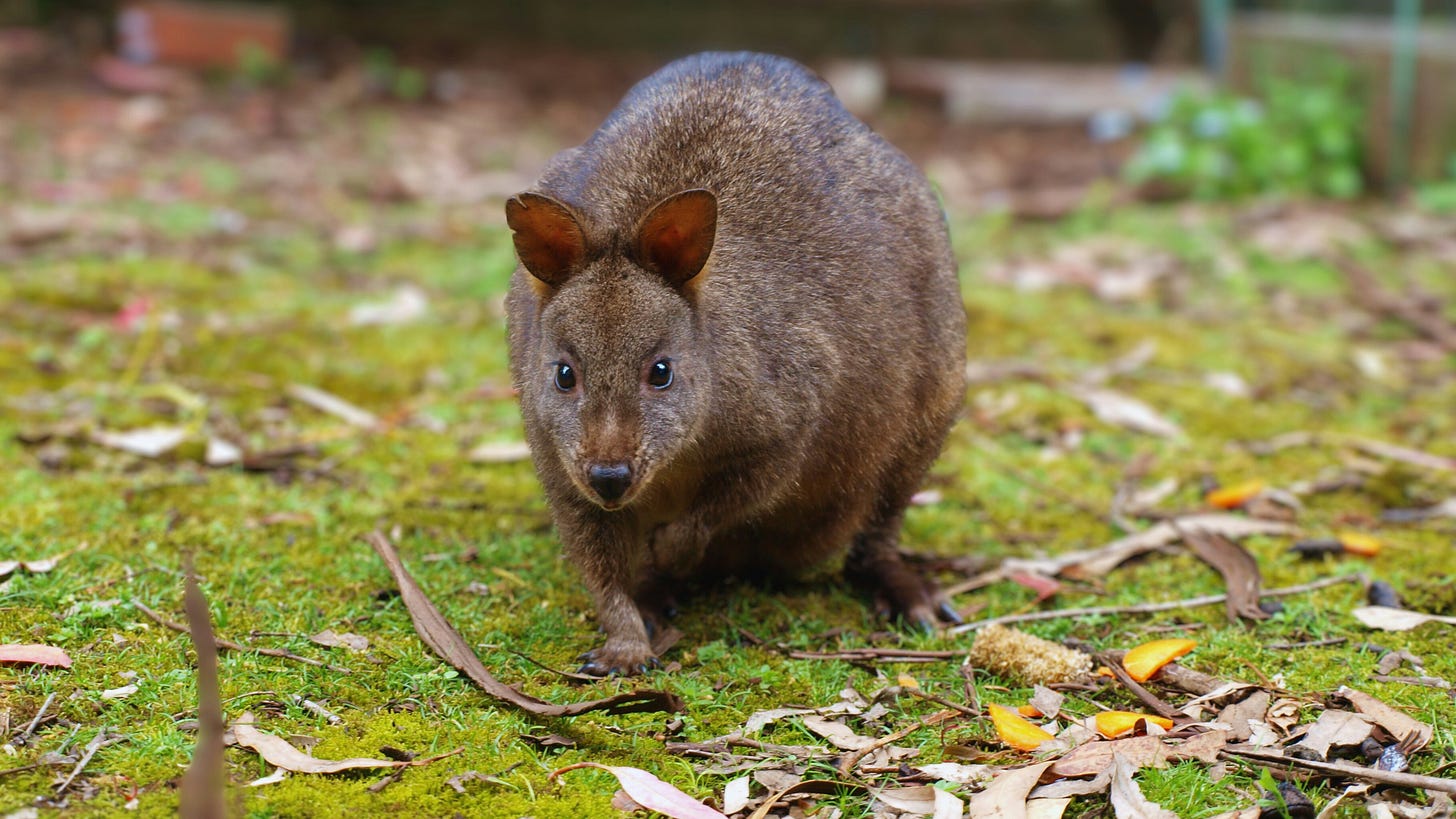
On the sea wall, I had a strangely grounding conversation with a young man on meth. A man whose life had clearly unravelled in the same streets I was about to leave behind.
(By conversation I of course mean that I was choosing my words carefully and not making eye contact so as to not get the living snot beaten out of me.)
After listening to him rant on for several minutes about “cennalink” and some chick named Bronwyn, I continued along the concrete path, stopping briefly to watch the concrete carrier Goliath ship kicking up a load of sediment against the rocks.
As I turned toward the statue of Poseidon, looming over the restless waves, it felt like the sea itself was staring back at me. Not just water, but a vast, unknowable expanse. A reflection of everything I was about to dive into.
The waves crashed against the shore, like the pulse of something bigger than myself, something I couldn’t control. It wasn’t just the physical distance between Tasmania and Russia that stretched seemingly endless before me. It was the chasm between the life I had always known, and the one I was about to create together with my fiancée.
I harbour no ill feelings toward Australia. To me, it was the perfect country to grow up in: safe, sunny, and abundant nature. Tasmania is especially beautiful, with a moderate climate, beautiful beaches, clean air, and friendly locals.
However, given the economic struggles, political mess, numerous meth-head encounters, and soaring cost of living gripping this beautiful island, saying goodbye felt… surprisingly easy.
From Sunburn to Frostbite in 24 Hours
The evening after Christmas day, I caught the Spirit of Tasmania ferry across the Bass Strait to Melbourne. The crossing was fairly typical: windy, rough, and a lot of pale and sickly passengers trying their best to hold in their vomit.
It brought back childhood memories of the time when some kind of pink fluffy dessert was served in the ship’s buffet restaurant. It was a “rougher than usual” crossing and there were piles of pink-coloured vomit all over the decks as fellow passengers inevitably succumbed to sea sickness, but I digress… back to the story.
I arrived in the Port of Geelong, a good 80 or so kilometres (that’s 49.7 miles in Freedom units) from the Melbourne Tullamarine Airport. It was early in the morning but the Aussie Summer sun was already starting to bite. By the time I got to the airport it had already hit 35oC (95 Freedom units), and during the day it only got hotter.
Drenched in sweat, I checked in for my flight. The woman at the counter paused, gave me a pair of unbelievable stink-eyes, and double-checked—“You’re going to Russia?”
The look said it all. Who in their right mind would choose to travel to Russia when the US and Australian media were neck-deep in a loud, expensive, and USAID-sponsored Russophobic campaign?
Even booking the tickets had been a headache. Sanctions weren’t as bad then as they are now, but Australian flight aggregators had already scrubbed Russia from their listings like it didn’t even exist.
The only option was to book multiple flights using a VPN endpoint in UAE, meaning I would need to make a stop in Dubai and jump on another operator for the last leg of the journey.
By the time I landed in Dubai, an Australian woman on the flight had gotten so drunk she was slumped in her seat, shouting racist slurs about Indigenous Australians to anyone who’d listen—which, thankfully, was no one. As if that wasn’t enough, the weather in Dubai managed to outdo Melbourne.
It was balls-sticking-to-your-leg hot, and the airport’s air conditioning was doing that classic airport thing, i.e., blowing just enough to remind you how inadequate it is. (Seriously, why is airport HVAC always so shit?)
I needed to get to Terminal C, which, unfortunately, meant hopping on a bus. But if there’s one place where that’s not a hassle, it’s the Dubai International Airport. It’s easily one of the most well-run and user-friendly transport hubs I’ve ever experienced. All terminal transfers are done airside, and the staff are incredibly intuitive, often spotting travellers with that wide-eyed, “I have NFI idea where I’m going and my gate closes in five minutes” look before you even have to ask for help.
I spotted a Russian-speaking family and, without much thought, trailed behind them like a lost puppy all the way to my departure gate. At a Travelex along the way, I made a half-hearted attempt to swap my USD for Rubles—no luck… f*cking sanctions.
By the time boarding was called, I was running on fumes, but I still managed a tired “спасибо большое” to the hostess before collapsing into my seat.
Mid-flight, I was itching to glimpse the snow-covered Steppe of Kazakhstan, but thick clouds blanketed everything below. It wasn’t until we started descending into Yekaterinburg that the sky finally cleared. And there it was. For the first time in my life, I saw a landscape not just dusted with snow—but completely wrapped in it. I pulled out my phone and snapped what would become my first photo of Russia.
It was a shitty photo and a small moment, but a big one for me. A sun-bleached Aussie who, just 24 hours earlier, had been wiping sweat off his forehead under the blistering Melbourne sun, was now landing on an ice-laden airport in the middle of the Russian Urals.
I was unbelievably apprehensive about the border control portion of this journey. After all, I was a guy, from an unfriendly country, with shithouse Russian language skills, and not flying in via the usual Moscow route.
As I lined up for passport control, my mind raced through every possible question I could be asked. I rehearsed my “Извините, я не говорю по-русски” speech at least forty times, each repetition doing nothing to calm the nerves clawing at my gut.
Clutching my distinctly unfriendly passport, I stepped forward and handed over my Aussie documents and Russian visa with hands that weren’t as steady as I’d have liked. The officer, stone-faced and authoritative, flipped through my pages, scanning each one with a practised intensity. She glanced up, studied me for a beat too long, and then returned to her inspection. My stomach tightened.
Then, without a word, she printed off an immigration card and slid it across for me to sign. My fingers gripped the pen, my heart still hammering. And then—the sound. That glorious sound every international traveller breathes a quiet sigh of relief when they hear.
A firm, unshakable thud as the border control stamp slammed onto my passport.
Relief flooded through me like a tidal wave. It was done. I was in.
She slid my passport back across the counter, locked eyes with me, and, in perfect English, said the last thing I ever expected to hear:
"Welcome to Russia."
Thrust Into the Deep End
Having cleared customs and gotten my blood pressure back to a semi-respectable level, I took my first steps into the arrivals lounge of the Yekaterinburg International Airport. But at that moment, I couldn’t have cared less about my surroundings as there was only one thing on my mind.
After months apart, I finally saw my fiancée. The second I wrapped my arms around her, the stress, anxiety, and exhaustion of the journey just melted away. For the first time in what felt like forever, I could breathe.
Then, as the adrenaline faded, my senses sharpened. I looked around, properly taking in where I was. The airport was modern and spotless. Outside, snow drifted down in soft, lazy flakes while maintenance workers made a valiant but ultimately futile attempt to shovel it away.
We settled into a small cafe near the entrance, and as I warmed my hands around a coffee cup, the questions started swirling and the fog started lifting.
Where was all the crumbling Soviet-era infrastructure?
Where were the rude, arrogant Russians I’d been warned about?
Why weren’t officers roaming the crowd with rifles like they did in Melbourne airport?
Where was all that misery and despair the Australian media had shown me?
And why the hell was my Australian mobile network still working here?
My fiancée paid for our coffees with her MIR card, because, of course, my now-sanctioned Australian VISA and MasterCard’s were nothing more than useless plastic here. I fired off a few messages to my mate back home, the one who had helped me get this entire journey off the ground (you know who you are).
Then, with a deep breath and a final sip of coffee, it was time to step outside and into a world that was nothing like what I had been told to expect.
That first step outside hit me like a brick wall. A freezing, merciless, brick wall.
It was cold. Colder than anything my stupid, tropical Australian existence had ever prepared me for. -22°C (or -7.8° in Freedom Units), and I was utterly, laughably unprepared.
Back in Australia, I’d packed the warmest coat I owned, which, in hindsight, was probably fine for a brisk Russian spring evening, but absolutely useless against the wrath of a full-blown Ural winter. Suddenly, all those strange looks I’d gotten from the Russians on the plane, bundled up in their puffy jackets, thermals, and layers upon layers of insulation, made perfect sense.
My fiancée turned to me, with love, concern, and a hint of “I told you so” in her eyes. “Are you cold?”
I, an absolute idiot, responded with the most Australian “she’ll be right mate” answer possible.
“Nah, I’m fine.”
I was not fine. The icy air sliced straight through my coat like it was made of tissue paper. Within two minutes, the shivering started. A minute later, I couldn’t feel my fingers.
Okay. So this part of what they say about Russia is true.
In winter, it’s bloody cold.
Unimaginably cold.
So, needless to say, the first place I visited in Russia (apart from the airport—which, as every traveller knows, never counts) was a clothing store.
And that’s when I had my second fog-lift moment.
It was 9 PM. A clothes shop was still open.
In Australia, 99% of stores slam their doors shut at 5 PM on the dot. After that, most towns and cities turn into ghost towns, because, really, what’s the point of being there if everything’s closed? But here in Yekaterinburg, the streets were alive. Shops were still buzzing with customers. Supermarkets, pharmacies, and even banks were open. Russia actually lets working people shop after work.
Incredible.
And then came the next shock. The streets were immaculate. No graffiti. No homeless people begging for change. Not even a stray wrapper floating down the pavement. The infrastructure was modern, the public transport efficient and on time, and the old historical buildings were lit up in stunning, yet tasteful, colours.
Standing outside that store, wrapped up in my fancy new, actually warm coat, it hit me like a freight train.
Russia was nothing—absolutely nothing—like the mud-covered Ladas and crumbling Soviet housing blocks that SBS World News had drilled into my head.
The people were friendly. The shops were overflowing with fresh, affordable groceries.
The economy wasn’t just scraping by, it was thriving.
This wasn’t a backward, decaying country.
This was a modern, high-tech, gorgeous city.
And it was only the beginning.
The Train Ride to the Unexpected
Over the next few days, we had a journey ahead of us. First to Perm, then onto a village where my fiancée’s family was gathering to celebrate New Year’s. This meant taking the infamous Russian Railways, an overnight train ride that, I had been warned, could get pretty interesting, especially in third class.
I braced myself for the worst. Crowds. Chaos. Unpleasant encounters.
Instead, as the night rolled on, the rhythmic hum of the train blended with the quiet conversations of passengers wrapped in thick coats and blankets. Outside the window, the moonlight cast a soft glow over endless snow-dusted forests, their untouched beauty stretching beyond the horizon.
My fiancée, meanwhile, had already become deeply invested in a fellow passenger’s story about her granddaughter, because, as I quickly learned, on Russian trains, everyone is your best friend.
And somewhere between the warm chatter, the peaceful stillness of the countryside, and the gentle rocking of the train, it hit me like a snowball to the face.
They lied.
My country. My government. The entire Western world.
Lie after disgusting lie.
They painted Russia as a nation in despair, in chaos, in ruin.
I was expecting bleakness, yet I had just left a vibrant, bustling city.
I was told Russians were rude, that they would be hostile, and that I should be careful. Instead, I had been met with nothing but genuine kindness—the kind that isn’t forced or faked, but simply exists (a story for another post).
I was told the economy was collapsing under sanctions, yet I found a payment system and digital banking infrastructure light-years ahead of anything in Australia (СБП anyone?).
I had seen the images of empty supermarket shelves, abandoned buildings, grey, crumbling streets, and a country suffocating under Western sanctions.
None of it was true.
None of it.
By the time we arrived in Perm, stepping out onto the icy platform, I found myself in yet another breathtakingly beautiful city, one I had only seen before through my fiancée’s photos. The frozen yet magnificent Kama River stretched out before me, reflecting the golden glow of the cathedral lit up for New Year’s. The streets were clean, lined with twinkling lights in the white, blue, and red of the Russian flag.
And despite not being Russian, despite having only been in the country for a matter of days, I felt something unexpected—
Pride.
Pride for a country that has been the butt of every bad US action movie about spies and terrorists.
Pride for a country that has weathered thousands of sanctions and still stands strong.
The cold truth is that in an age where we can talk to people on the other side of the world in an instant, where information is at our fingertips 24/7, how is it that our countries still manage to lie to us?
How do they still convince us that the places they don’t like are broken, backward, sub-standard, and dangerous?
And worst of all, why do people still believe them?
No one back home believes me when I tell them what Russia is really like.
But please, challenge your own assumptions.
Because the wonderful thing about seeing the fog lift is that there is so much more to see.
And seeing is believing.
My first Russian winter was supposed to be cold and miserable.
Instead, it was full of warmth.
The warmth of its people.
The warmth of realizing that not everything you’ve convinced yourself of is real.
And, of course, the glorious warmth of Russian central heating.





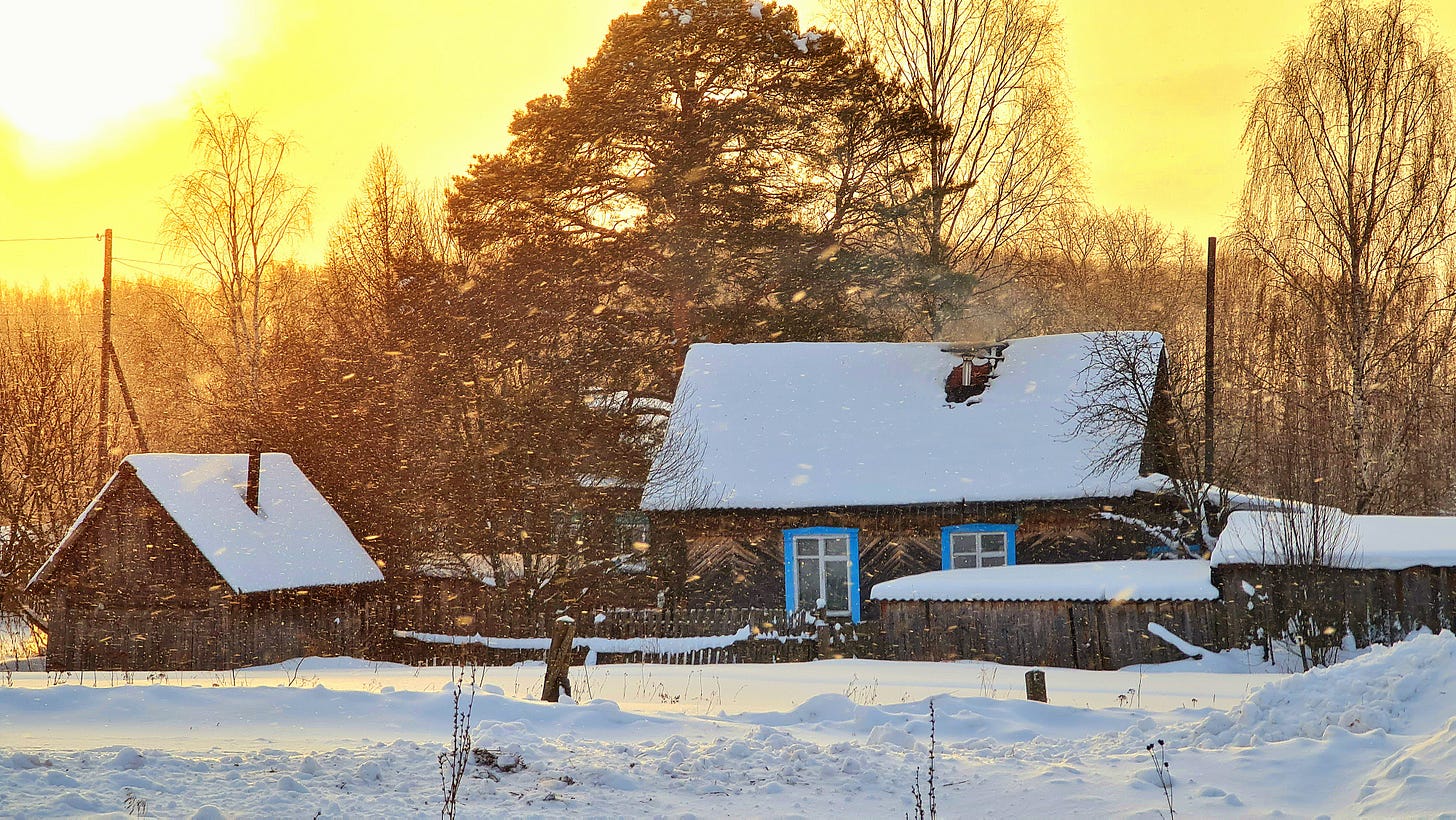
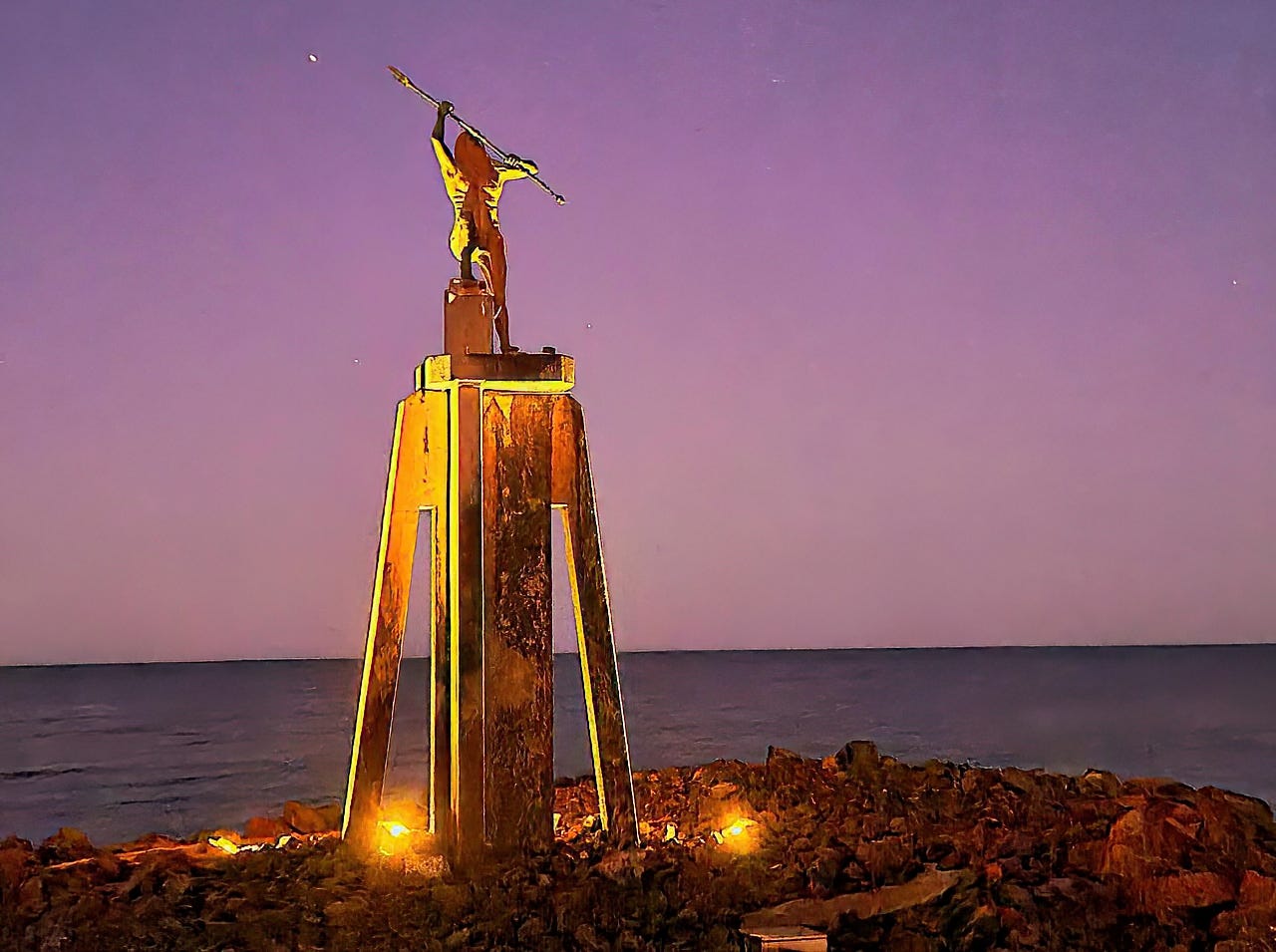

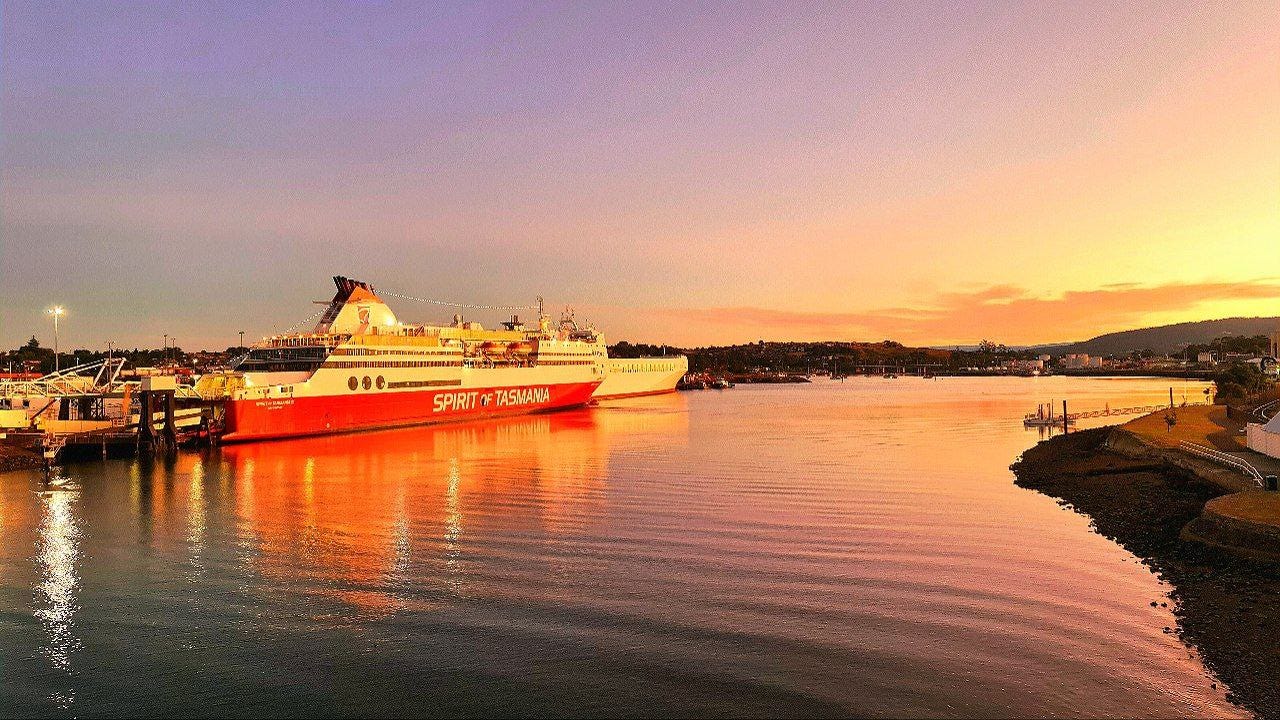
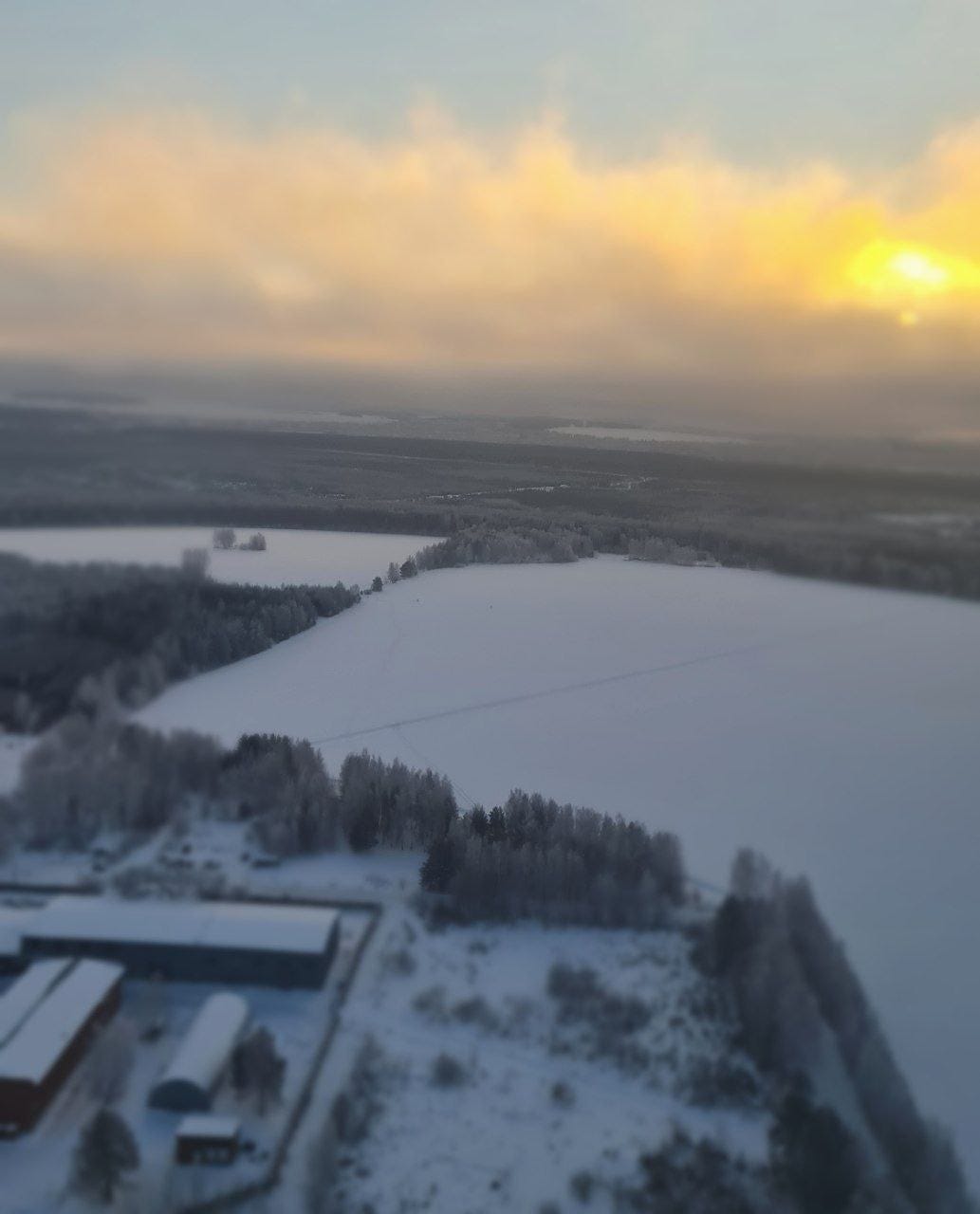
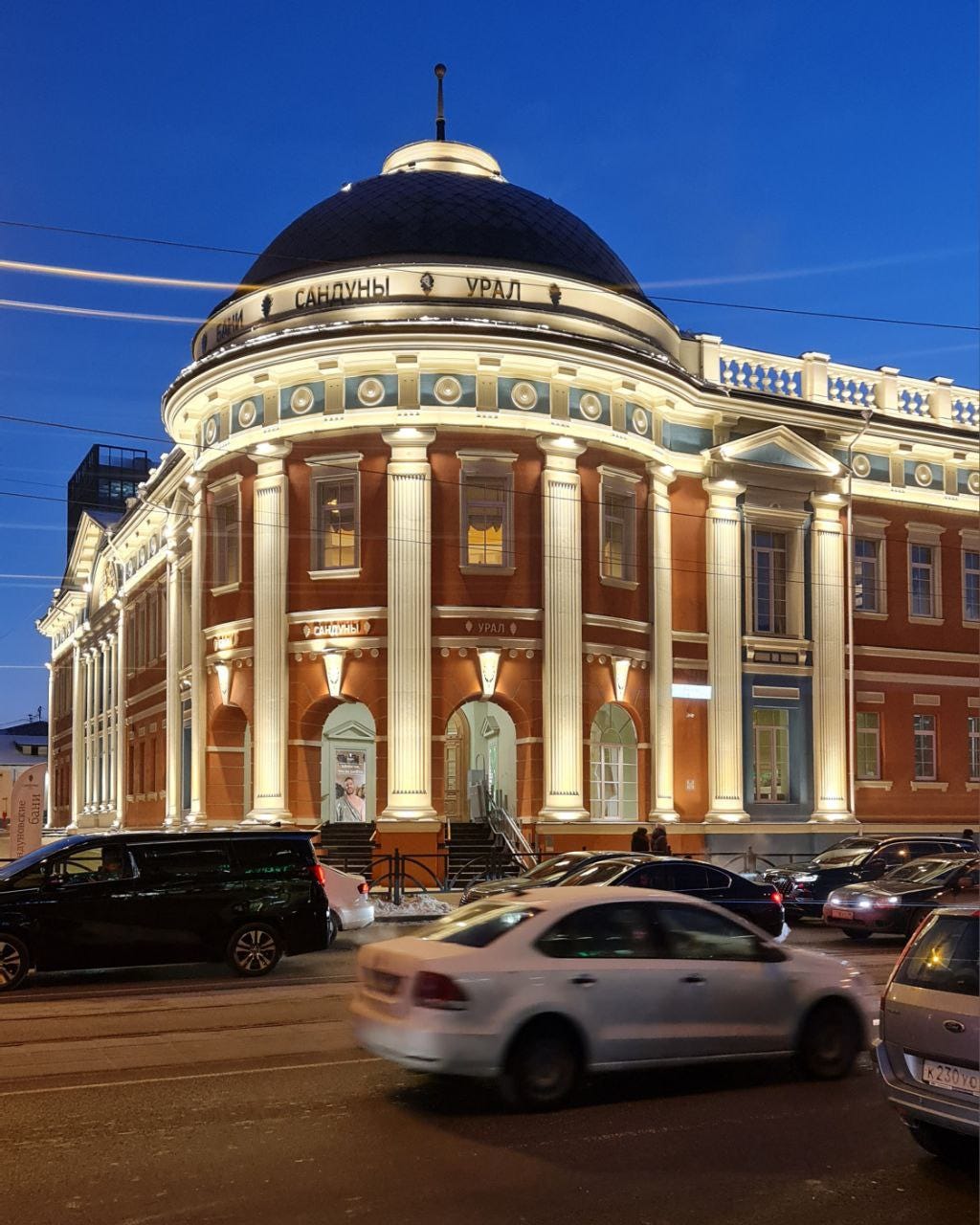

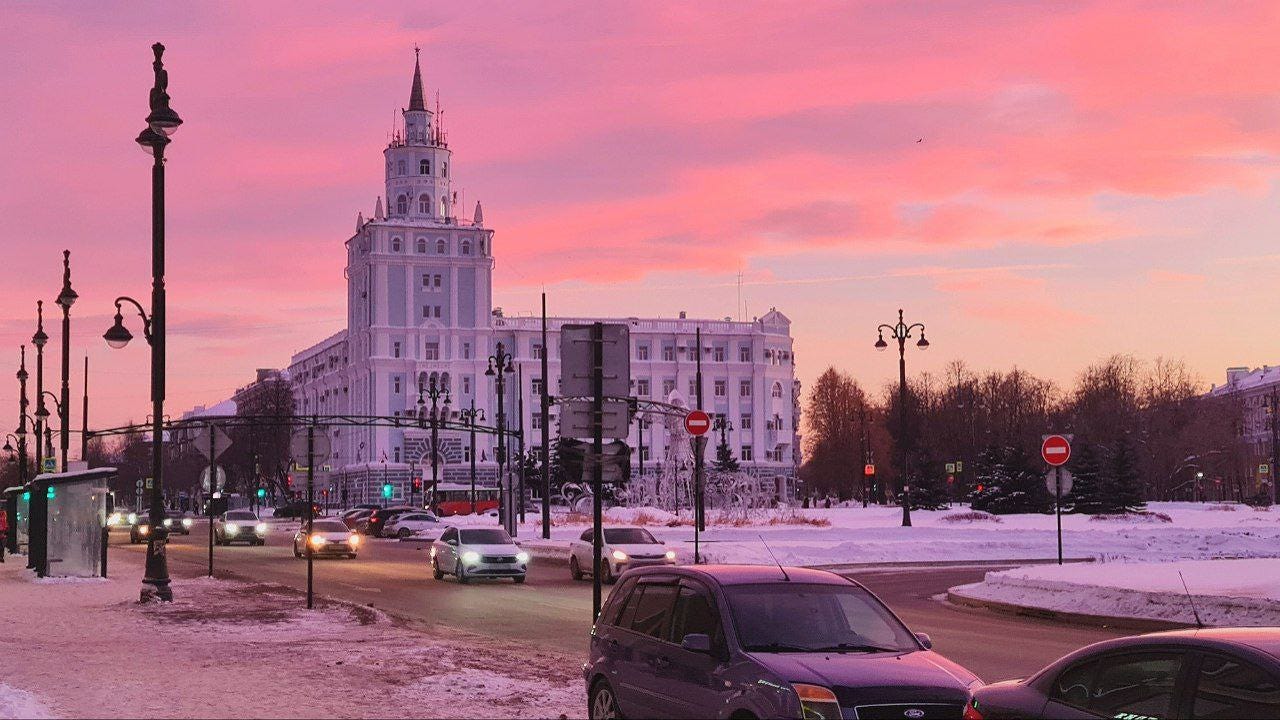
Есть много плюсов в том что Вам врут о нас и о нашей стране. И главный плюс это то что в итоге к нам едут только смелые и умеющие думать люди, а не наркоманы и воришки. Так что пусть ваши сми продолжают делать из нас монстров:)
Интересно читать о том, что давно перестал замечать в своей родной стране, что стало обыденным и неосознаваемым. Спасибо вам за напоминание и правду о России, которую, надеюсь, со временем увидят люди во всем мире.